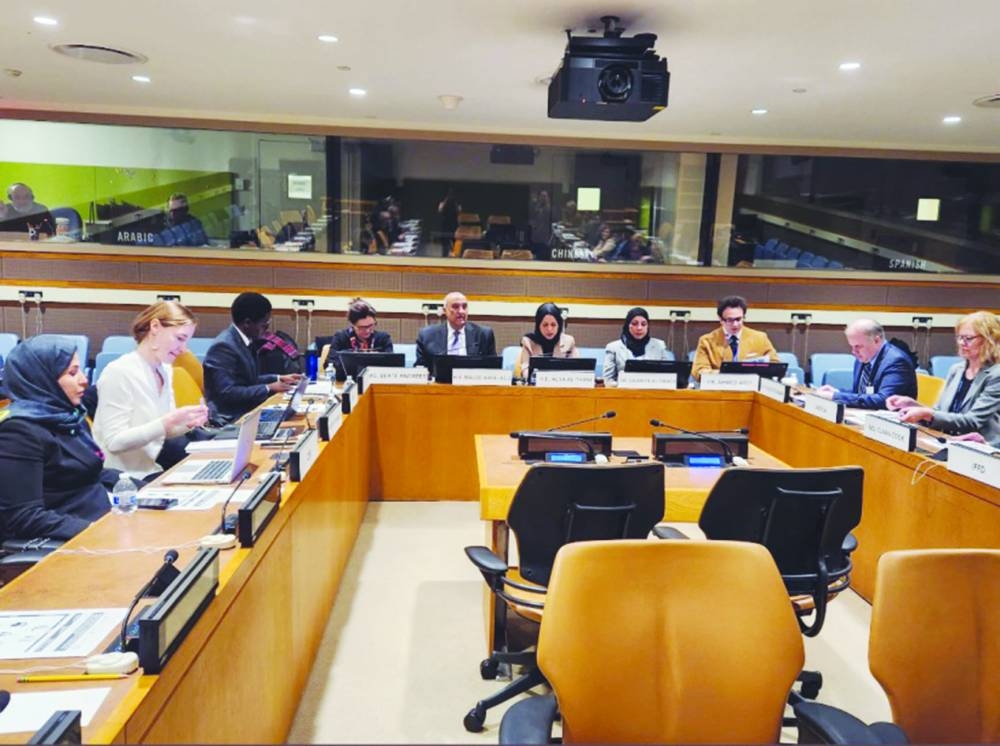Changes to family life and well-being post Covid-19 and the role played by NGOs in supporting the employment challenges families face were the focus of two side events organised by the Doha International Family Institute (Difi) at the 61st session of the Commission for Social Development.
Both events were held in partnership with the Permanent Mission of Qatar to the United Nations in preparation for the 30th anniversary of the International Year of the Family in 2024.
The Doha Briefing event, organised in partnership with Permanent Mission of the League of Arab State to the UN, was held under the theme “Recovery from Covid-19: consequences on employment and decent work among Arab families and its implications on achieving SDG8 in the Arab world”.
It focused on changes caused by Covid-19 which have affected the health, social, economic, physical, and psychological well-being of families, while experiences were exchanged on new evidence and innovations targeted at families.
Ambassador Majid Abdel Fattah Abdel Aziz, permanent observer for the League of Arab States to the UN, in his opening remarks, said: “The Covid-19 pandemic has left a profound effect on our Arab society, and we are now dealing with these intertwined crises, especially the challenges facing families in the Arab world and the social impacts on children.”
Ambassador Alya Ahmed S al-Thani, permanent representative of Qatar to the UN, said: “We want to empower families in order to continue to thrive, which is why it is important to continuously participate in international platforms such as the Committee on Social Development at the UN.”
Dr Sharifa Noaman al-Emadi, executive director, Difi – a member of Qatar Foundation – presented evidence and findings of the institute’s studies, including a study conducted in 2020 on “Overcoming Crises: The Impact of the Coronavirus on Family Cohesion in Qatari Society”, saying: “Producing and advocating for evidence is critical in supporting families in dealing with work challenges, especially post- pandemic.”
Dr Nader Kabbani, director of research, Middle East Council on Global Affairs, said: “The Covid-19 pandemic increased awareness of the critical role that families play in promoting the social, economic, and psychological resilience and wellbeing of their members.”
The second side event, held under the theme “Towards full and productive employment and decent work for all families: The role of NGOs”, was also in partnership with the UN Department of Economic and Social Affairs, the World Family Organisation, and the International Federation for Family Development. Speakers addressed the best practices implemented by non-governmental organisations during Covid-19 and the impact made on productive parental employment on households, livelihoods, and the well-being of workers and their families.
Speaking on the role of NGO’s, Dr al-Emadi addressed the importance of presenting evidence to develop family-friendly employment policies: “There are important interlinkages between NGOs and governments. Difi is on many committees that support policies for families – for example, Qatar Foundation used Difi’s policy recommendations first, before recommendations were made to advocate for implementation within our community. We also do research with cost benefit analysis and provide evidence that shows what will benefit the country for an improved work-family balance.”
Noted outcomes of the role of NGOs included more attention being paid to family-oriented policies at international, regional, and national levels through the production of further research and evidence on employment and decent work, while the Doha Briefing recommended the need to work on developing strategies capable of resilience to face any future pandemics, with increasing the role of regional and international organisations.

Difi participates in open dialogues on effects of Covid-19 at UN.
